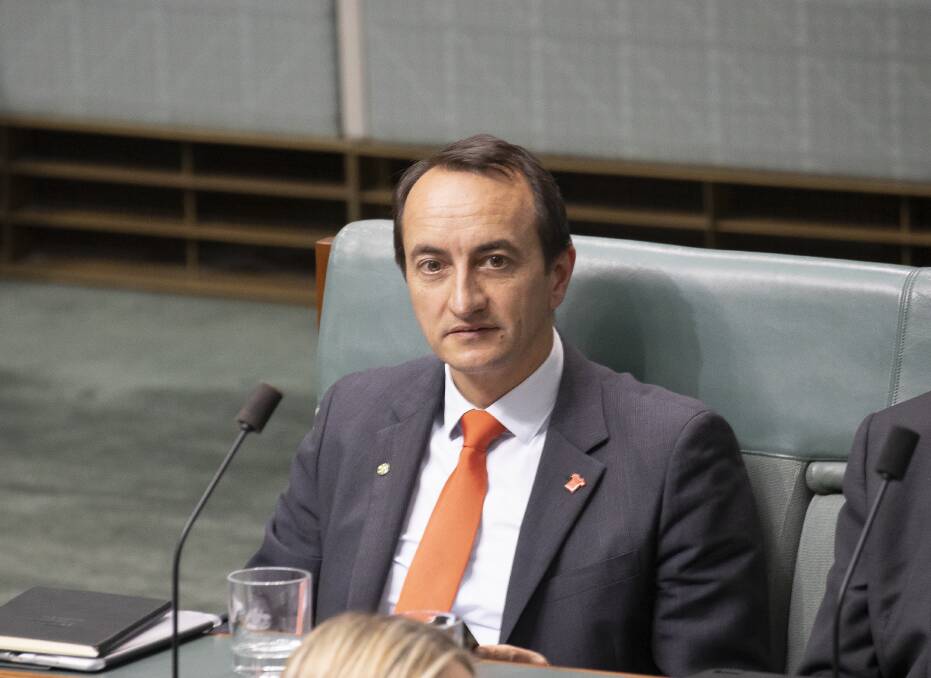
Adjusting the requirements for security clearances for Chinese-Australians would help the government's security and diplomatic institutions to respond to the growing challenges posed by the increasingly frosty relationship between the two countries, a Liberal MP has suggested.
Subscribe now for unlimited access.
$0/
(min cost $0)
or signup to continue reading
Chinese-Australians moving up the ranks of the diplomatic and security agencies have often chosen to drop out of the system rather than face the difficulty presented by the arduous checks, which pose more hurdles for people with family living overseas, former diplomat Dave Sharma said on Tuesday morning.
At an event launching a series of essays on Australia's relationship with China for the think tank China Matters, Mr Sharma made the observation that procedures may need to change to ensure Chinese-Australians aren't unnecessarily locked out of jobs where they are needed.
Australia's security agencies need to better engage with Chinese Australian communities, Mr Sharma wrote, including changing security clearance approaches to be able to actively recruiting Chinese Australians and Mandarin speakers.
"Many candidates are being turned away and others are leaving government service because of this issue."
Labor MP Tim Watts, who also wrote an essay and spoke at the event, said in his research for his book in 2014, it appeared the Department of Foreign Affairs and Trade might be less proficient in Asian languages than the wider Australian community.
Former director-general of the Office of National Assessments Allan Gyngell, who hosted the event, said the issue of security clearances was a "looming" problem.
While the clearance process is "properly intrusive" to ensure it is done properly, Mr Gyngell said he also saw an issue of "wasted talent" of Chinese-Australians leaving public service due to the system.
Mr Sharma said clearances could take six months longer to come through for Chinese-Australians than for other Australians applying for similar levels. He also suggested the use of artificial intelligence and automation in the clearance system should be explored.
The discussion around security clearances was part of a policy brief where Mr Sharma warned Australia should be ready for turbulence in the relationship for up to two more years, and avoid over-reaction and panic in recognition that Beijing is trying to elicit such reactions.
The relationship reached a new low last week when a junior Chinese foreign official tweeted a photoshopped image of an Australian soldier holding a knife to the throat of an Afghan child.
Prime Minister Scott Morrison and Foreign Minister Marise Payne reacted angrily, with Mr Morrison demanding an apology and calling the image "repugnant".
The question of how to handle the relationship with an increasingly aggressive China is being hotly debated, with some exporters already counting the cost of their product being rejected at Chinese ports.
Australia maintaining course will strengthen resolve among similar nations, he wrote.
"Beijing sees Australia's behaviour as having a demonstration effect on other Western nations: If the PRC is successful in brow-beating our political class and constraining our policy choices, it will serve as a lesson to others," he wrote.
In what could be seen as a dig at his Liberal colleague Eric Abetz, who has been criticised for demanding Chinese Australians appearing at a parliamentary committee hearing denounce the Chinese Communist Party, Mr Sharma said Chinese Australians must be defended when their loyalty or patriotism is questioned.
"Not only are such attacks deeply offensive to our national character, they do us immense strategic harm," he wrote.
READ MORE:
For faster access to the latest Canberra news, download The Canberra Times app for iOS and Android.


